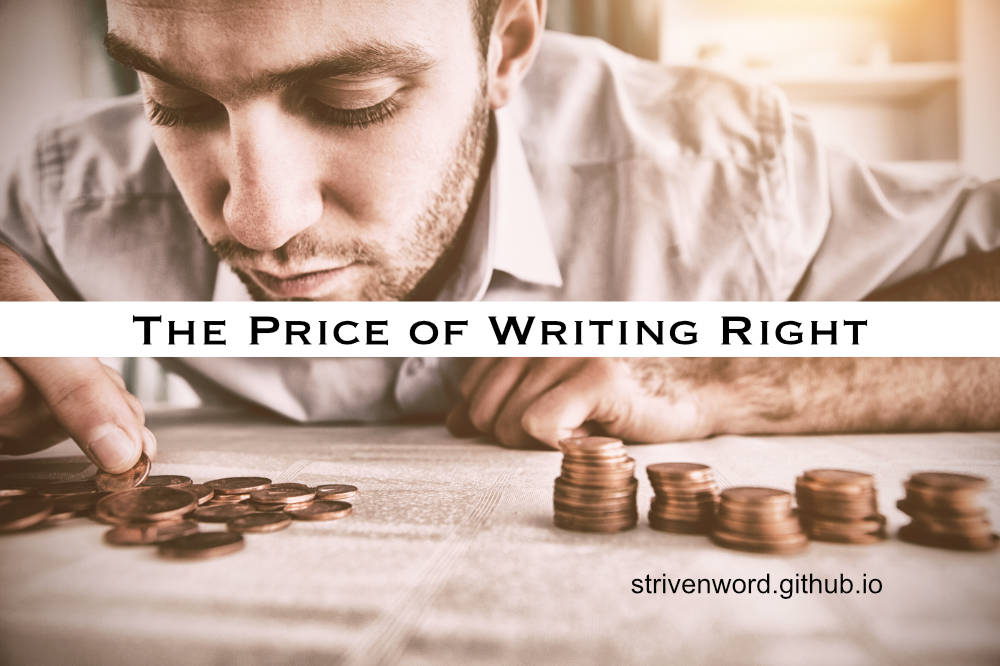The Price of Writing Right

Trying to write is immediately painful, because it brings to immediate focus one’s internal misery. It would seem that to be actually effective and efficient as a writer, one must first go through whatever may be necessary to heal from one’s conflictions. But even if one is psychologically and emotionally stable at the moment of composition, that moment of staring at the blank screen will inevitably be a moment of tension as a thousand potential distractions loudly peddle escape from the confrontation. And though the first belabored phrase may indeed be among the hardest to conceive and to commit, unfortunately the rest of the composition never flows directly out of that initial spark of ideation.
Writing as the process of creating a textual work – the definition used here – must be distinguished from merely chatting or conversing with written language. People who are at once gifted and cursed with wordy minds may be able to ramble on in low value, often self-indulgent sentences that compose sometimes lengthy documents. When posted as casual self-expression, these spiels may or may not be harmful or helpful for the overly verbose Internet user and his or her followers and commenters; but such documents barely count as written works. They neither solve an information problem nor incorporate artistry beyond crude emotional appeals. Naturally, textual messages between two people or closed groups seldom aspire to be any kind of real writing, but even in emails or chat systems a daydreamy person may (to the probable annoyance of his correspondents) convince himself that he is a great writer possessing the persuasive power of easily laying out the truth of any given matter in detailed wordage.
Such a person will one day be confronted with needing or sincerely wanting to write something deeper than the complaints or curiosities that are coming easily to his mind at the moment. When the self-proclaimed writer tries to begin the task, surface thoughts form a haze that engulfs the road to the writer’s more valuable thoughts about his true topic, colluding with distractions to destroy resolve and freeze progress to a glacial grind. Unable to produce a reasonable piece of coherent writing in a specific segment of time, he must accept the truth. Real writing requires masterful discipline, and he is not much of a writer.
There is no escape, no other way to become the author of a work that is either informative or inspiring and that serves some use in its context. This is because the horror of really writing is not the task of thinking up coherent sentences and stringing the words together. The horror lies in slogging meticulously through one’s true thoughts, in having to analyze one’s thoughts and fit them together before being able to move forward to repeat the process. The struggle persists even for technical writing; no matter how rigid the format or well defined the subject, one’s problems and head noise will rattle around with every attempt to define an idea. Writing with sincere artistic intent sometimes involves less surface distraction but is harder in the more important sense of requiring much deeper self-confrontation. Hardest of all is trying to force artistic intent when the subject or story is not really what one values.
As broken paragraphs take form and ragged ideas start to link together, the emerging prospect of having expressed an idea in the best possible way becomes the incentive for enduring the humiliating inefficiency. Writing is the purest way of incarnating ideas, meaning codified in the most direct and objective way possible. The ability to consistently create works of text that convey meaningful ideas is even more valuable in this age of many easy words and little meaning, and few make the effort to attain this valuable skill. Those who do likely discover that meaning is its own reward, offering a place for all the chaotic thoughts and an empowering reason to push past distraction.